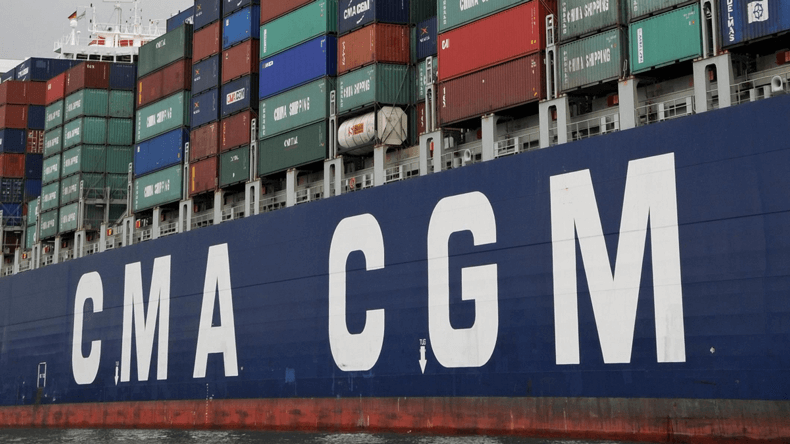In a move certain to reignite controversy in maritime trade circles, French shipping giant CMA CGM on Thursday announced the imposition of a new Peak Season Surcharge (PSS) on cargoes destined for Nigeria and other West African ports.
The decision comes a day after stern warnings from the Union of African Shippers’ Councils (UASC) and vocal criticism from the Nigerian Shippers’ Council (NSC) over arbitrary surcharges threatening regional trade competitiveness.
According to the shipping line, the new surcharge will take effect from 10 November 2025 and remain valid until further notice, applying to all shipments originating from Spanish ports bound for West Africa — with the exception of Dakar, Senegal, where a PSS is already in force. The surcharge is fixed at EUR 150 per container and is levied on all dry cargo, including specialised flat and open-top containers.
CMA CGM further stipulates that the PSS will be collected together with the freight.
This fresh levying underscores a deeply entrenched pattern of surcharges hitting Nigeria and its West African neighbours over the past year.
Earlier in 2025, CMA CGM had introduced PSS on dry cargo from Asia directed at Nigerian and West African ports, citing capacity pressures and rising operational costs.
That measure generated strong backlash among importers, logistics operators, and regulators, who argued that such surcharges were being applied arbitrarily and without sufficient transparency.
More recently, in October 2025, the company introduced a PSS specifically targeting reefer (refrigerated) cargo imported into Apapa Port (Lagos) and other selected West African terminals.
The surcharge, set at US$200 per TEU, was justified by CMA CGM as a response to surging costs and logistical constraints on north-south trade routes.
The newly announced EUR 150 PSS from Spanish ports signals a continuation and geographic expansion of the surcharge trend.
Just a day before CMA CGM’s announcement, the NSC, speaking at a UASC seminar in Lagos, had issued a warning about the proliferation of surcharges imposed by foreign shipping lines.
Executive Secretary of the NSC, Dr Pius Akutah, decried these charges as “a major obstacle to Africa’s ability to compete fairly in global trade.”
He urged a collective approach among African shippers’ councils to push back against exploitative practices.
For importers in Nigeria and surrounding countries, the new surcharge translates into an additional cost burden, further squeezing margins already challenged by inflation, currency volatility, and high logistics overheads.
Analysts warn of a domino effect: once a major carrier introduces such a surcharge, others may follow suit, especially on sensitive trade lanes into Africa.
Shippers and freight forwarders will be compelled to factor these surcharges into cost projections, contract negotiations, and routing decisions.
From a regulatory standpoint, the NSC and fellow shippers’ councils may face pressure to respond more forcefully — possibly through legal or diplomatic challenges, industry coordination, or regional regulatory frameworks to clamp down on arbitrary surcharges.
